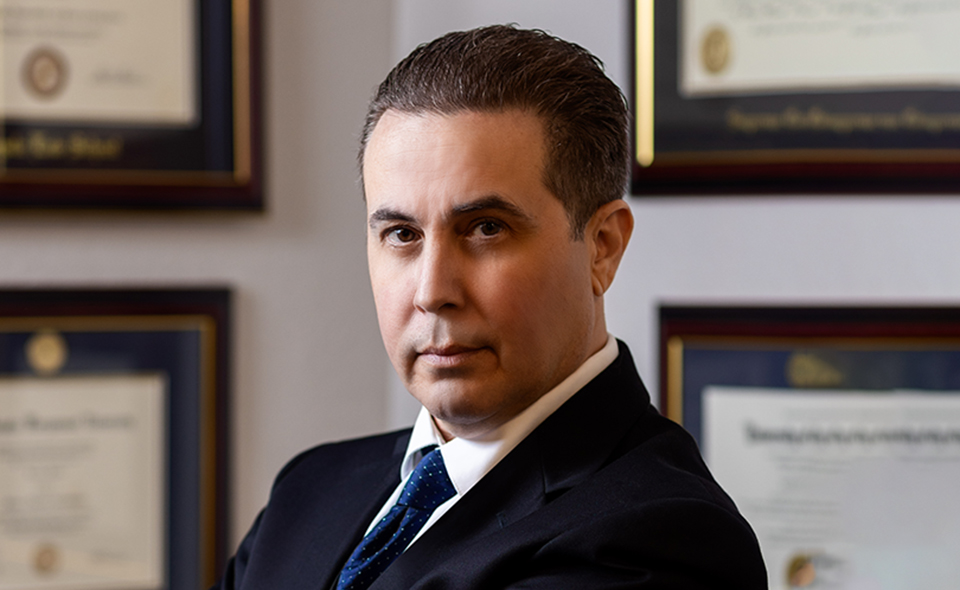Joining us this month is noted family lawyer Kennedy Koblin. In this exclusive interview, he explains what is meant by ‘parental alienation’ and how parents and legal counsel can be vigilant for it during divorce proceedings.
To begin with, what is meant by ‘parental alienation’?
Parental alienation as used in family court is a specific term of art that encompasses a broad array of behaviour of one parent or the other aimed at disrupting, or interfering with the relationship of the child or children with the other parent. It often manifests as a series of orchestrated behaviour usually over a prolonged period of time aimed at estranging the chid or children from the other parent.
Although parental alienation is not presently specifically defined by the California Family Code, the family court has codified by statute broad language to provide a framework whereby co-parenting and involvement of both parents in the lives of the chid or children is encouraged, and behaviour that could ultimately be defined as parental alienation is discouraged.
The overall aim of the family court with regards to children is to ensure orders that are in the children’s best interests and, in the absence of any facts or circumstances that would speak otherwise, orders that foster frequent and continuing contact with both parents are presumed to be in the best interests of the child or children.
How does this behaviour often manifest during separation or divorce?
In any separation or divorce matter involving children who are minors, it will be necessary for the parents (either on their own or with the assistance of the court) to come up with a parenting plan that defines the framework for everything from legal custody to the specifics of the time-share arrangement between the parents (often referred to as physical custody).
It is often in attempting to establish a parenting plan that parental alienation – when it occurs – can begin to be observed.
There is a multitude of ways that parental alienation manifests itself in every case. Commonalities, however, often involve continuous negative comments by the alienating parent about the other parent to the child, attempting to convince the child or others that the other parent may be unfit or in some cases potentially harmful to the child or children, frequent cancellation of custodial time, and even using the scheduling of extracurricular activities for the child that directly conflict with and interfere with the other parent’s custodial time.
There are really endless iterations of how parental alienation can manifest, but they tend to function to support the goal of disrupting the relationship and bond between the alienated parent and child.
In what ways can this be harmful to a child?
Unfortunately, the negative impacts of parental alienation on a child are often severe. Separation or divorce is always a difficult time for the children involved, and it is often that time when the children need both of their parents the most.
It is often in attempting to establish a parenting plan that parental alienation – when it occurs – can begin to be observed.
It is not uncommon for children in separation or divorce matters to feel in some way responsible. When the bond between the alienated parent and the child is disrupted, the children who are usually already struggling with the separation or divorce often express feelings of low self-esteem, low self-confidence, anxiety and depression. In some cases children develop lasting problems with trust and relationship-building well into their adult lives.
What knock-on effects does parental alienation have for relations between the separating parents and the broader family unit?
This is what I refer to as collateral fallout relating directly from the actions of the alienating parent, because the child of the alienated parent often has extended family – like other children (perhaps from prior relationships), grandparents, cousins, etc. When the direct relationship between the alienated parent and the child suffers, it usually follows that the extended family unit is also estranged from the child.
It is not uncommon for the child who has been subject to any degree of parental alienation to transfer the negative feelings they have about the alienated parent to that parent’s extended family unit. As a result, the child is deprived of a relationship not only with the alienated parent but also that parent’s extended family, which unfortunately ends up hurting the child the most.
Are there any specific signs of parental alienation occurring?
There are often several specific signs of parental alienation that manifest when it occurs, both within the child him or herself, and in the actions and behaviours of the parents themselves, both in their interactions and communications with each other and often observable in the pleadings themselves.
Within the children, evidence of parental alienation often manifests by an extreme alignment with the alienating parent and a level of hostility towards the alienated parent that is not in alignment with any action that parent has taken.
The child who has been subject to alienation will often express derogatory views of the parent that they have been alienated against, refuse visitation with that parent, and withdraw from or stop communicating with that parent.
Signs of parental alienation can often be seen in the parent’s (or parties) themselves as well. They typically manifest in overly hostile communications, absolute refusal to co-parent, failure to make the child or children available for visitation, making excuses regarding the availability of the child or children, refusing to engage in co-parent counselling, and (as discussed above) sometimes even actively coordinating extra-curricular activities for the children that knowingly and purposefully interfere with the other parent’s custodial time.
Does parental alienation tend to be inflicted deliberately, or accidentally?
In my experience, I think parental alienation can often be inflicted both deliberately and to an extent accidentally. When one discusses parental alienation at large, one tends to think immediately to an active, knowing, orchestrated campaign against the other parent. However, in every separation and divorce case, emotions run high. Sometimes angry, hurt, or resentful parties will lash out at the other parent in emotion, with the one thing they both love the most – their child or children.
In my experience, I think parental alienation can often be inflicted both deliberately and to an extent accidentally.
What other issues in family dynamics may arise during the divorce process?
There is an entire host of issues regarding family dynamics that may arise during a divorce. This includes communication, cooperation, the ability to put the needs of your child or children over your own, and the ability to work with the other parent (despite your feelings about them) to provide a safe and secure environment for the child or children that shields them from the separation or divorce and ensures that they know they are still loved equally by both parents.
What advice would you give to a parent who believes their child has been subjected to parental alienation?
In my experience, parental alienation is often the result of an extended and continuous process of one parent to maligning the other to the child or children. Therefore, facts and evidence are extraordinarily important, because without them, I think there is a tendency for courts to get lost in the only things they see – which are the pleadings and allegations of each party. While the courts are not strangers to this and can often make their own conclusions from the volume and tone of the pleadings, it is tremendously important to be organised with your facts and evidence.
I often advise clients to keep a journal, keep notes, and record each instance of perceived alienation, be it a cancelled visit, an ‘illness’, a refusal to make a child available for phone time, etc.
How can an experienced family lawyer help in this situation?
Issues pertaining to child custody and visitation can be complex and nuanced. An experienced family law attorney will be able to assist a client, who is understandably emotionally involved in the case, in making clear-headed decisions with an eye on what the law provides for.
Additionally, proving a case of parental alienation is often difficult. As they are usually so fact- and evidence-driven, an experienced family law attorney will be able to parse out what is relevant from what is not and assist their client in presenting their case in a clear, concise fashion that is supported by both the evidence code and the family code.
[ymal]
About Kennedy Koblin
What was it that led you to specialise in family law and domestic relations?
I grew up in a medical household and I watched my father, who is a cardiologist, intervene directly in people’s lives and be instrumental in changing them, and sometimes even quite literally saving them. The ability to engage in a profession that allows you to be directly involved in individual’s lives in a very important way, and make fundamental differences, is what drew me to focus my practice solely on family law.
Within the legal profession itself, I am hard-pressed to think of any other area where you work directly with people and families, going through what is often one of the most difficult times in their lives and are able to truly make a difference and be impactful.
While challenging for sure, I find the practice of family law to be both professionally and personally rewarding and fulfilling work.
Is there a past case that you have handled where you feel particularly proud of the role you played?
Over the course of my career I have been truly blessed with the many people I have been able to meet and the families that I have been able to assist. Thus it is difficult to pinpoint one particular case to highlight a result I am particularly proud of.
However, one recent and particular example that comes to mind is a case wherein my client had temporarily lost custodial rights due to false domestic violence allegations and my team and I were able to step in, cross-file for a restraining order for our client and secure the immediate return of the child to their custody.
Can you share anything about your plans for 2023 and beyond?
2022 has been a real opportunity for me to grow in several personal ways, and I would like to continue to take my personal and professional experience and continue to grow my practice to assist as many families as I can.
I am fortunate that at this stage in my career I can be judicious about the cases I take on. I always enjoy getting to know my clients’ families and their own specific and unique dynamics. For 2023 and beyond, I would like to continue to be able to do that.
Kennedy Koblin, Founder
5700 Stoneridge Mall Rd., Suite 230, Pleasanton, CA 94588, USA
Tel: +1 925-298-4808
Fax: +1 925-203-9797
E: kennedy@koblinfamilylawcenter.com
Kennedy Koblin is highly experienced family lawyer and a member of the Alameda County Bar Association who enjoys helping his clients through the difficult process of divorce and marital dissolution. Kennedy’s clients also benefit from his combined experience as a JD/MBA, which provides him with a perspective rooted in both business and the law. He is also a two-time recipient of the State Bar of California’s Wiley Manuel award in recognition of his pro bono contributions to the family court.





















